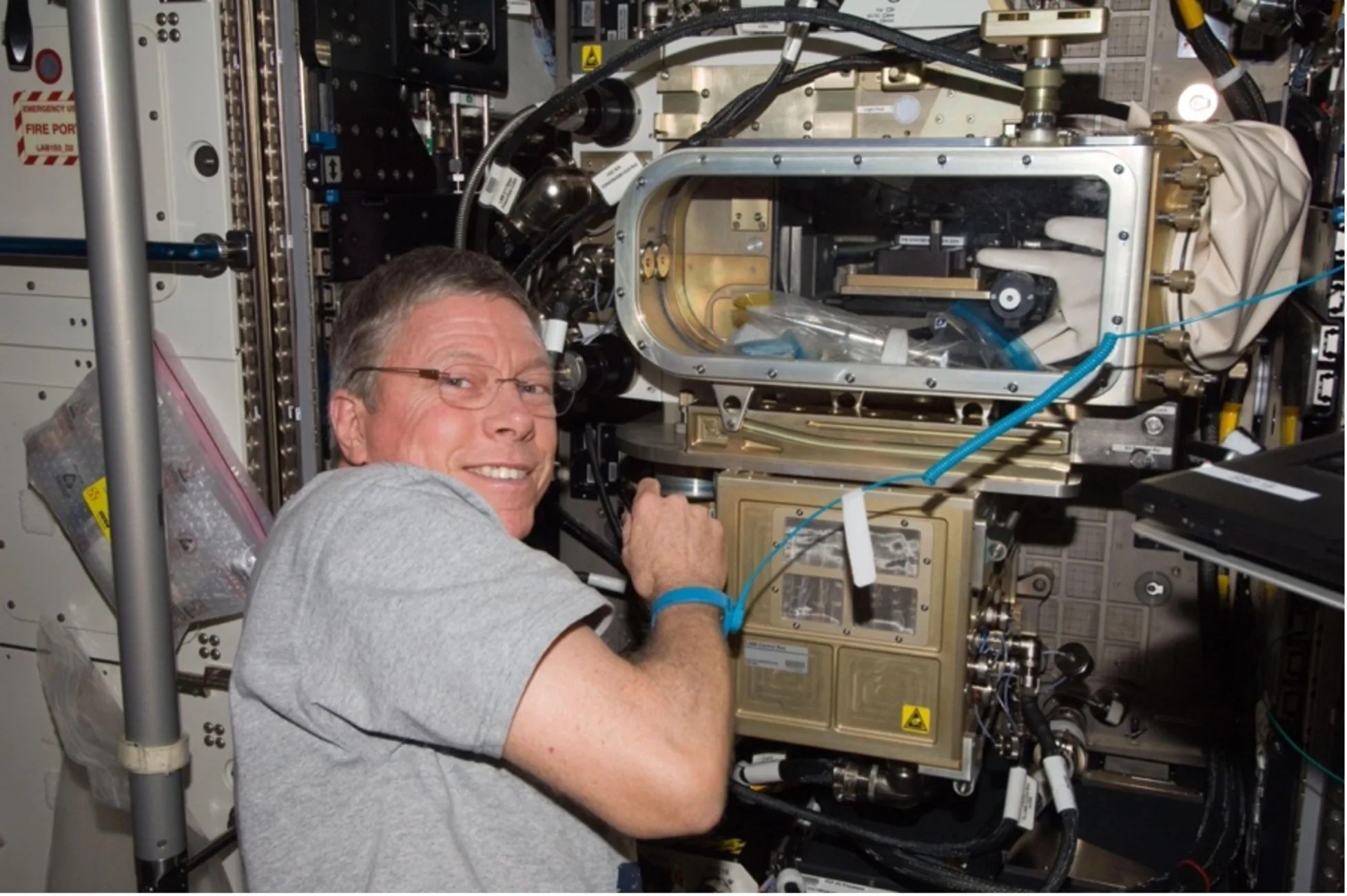Preliminary Advanced Colloids Experiment – Light Microscopy Module: Biological Samples (PACE-LMM-Bio)
Science Objectives
Preliminary Advanced Colloids Experiment - Light Microscopy Module: Biological Samples (PACE-LMM-Bio) is a NASA Rapid Turn Around (RTA) engineering proof-of-concept proposal in preparation for the Advanced Colloids Experiment (ACE). In Bio, crew members image three-dimensional biological sample particles, tissue samples and live organisms. The goal of this experiment is to indicate the microscope’s capabilities for viewing biological specimens.
Status
The experiment has concluded, and science is being evaluated.
Experiment Description
There are three tests proposed in Preliminary Advanced Colloids Experiment - Light Microscopy Module: Biological Samples (PACE-LMM-Bio). The first test uses micron size beads with different colors and one size that fluorescence. In the second test, the crew uses premade slides of tissue and small organisms that have already been stained and fixed to check for resolution and contrast capability on fixed biological samples. In the final test, the crew observes C. elegans, planaria and cell cultures at ambient temperature. They will observe these organisms and cells in real time. These worms are a commonly used model organism for cell development, behavior, genetics and radiation studies.
Space Applications
PACE-LMM-Bio enables the use of LMM for biological studies while in space. This capability improves the ability to analyze the effects the space environment has on biological systems. Analysis of samples on the ISS removes the effects of return and may reduce the need for sample return. The PACE-LMM-Bio experiment demonstrates the ability of the Light Microscopy Microscope to perform fluid physics and biological experiments on ISS. PACE-LMM-Bio in conjunction with the first experiment performed in LMM (Constrained Vapor Bubble) demonstrates the magnification, lighting, data collection and remote commanding needed for ISS biological experiments.
Earth Applications
PACE-LMM-Bio enables the use of LMM for biological samples which may expand our understanding of the space environment effects on biological systems. Since all life evolved under the effects of gravity, the absence of gravity may identify novel pathways that are important for a fundamental understanding of life’s basic processes on Earth.
The biological research community needs a high-quality microscope for use in microgravity. This engineering experiment proposes to determine the capabilities of the LMM and establish what limitations exist regarding its use for biological studies.





























